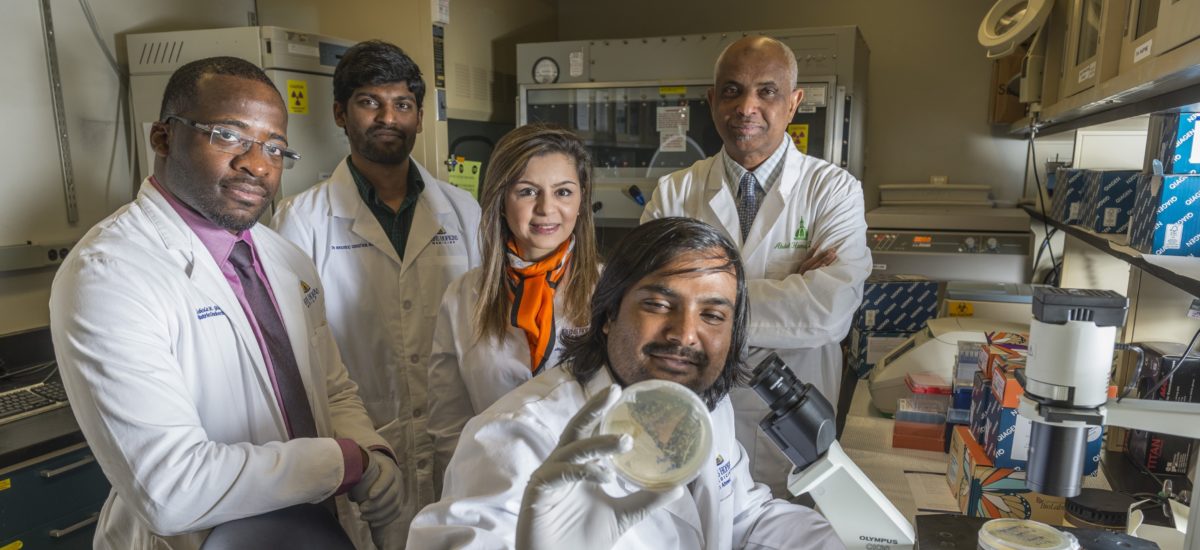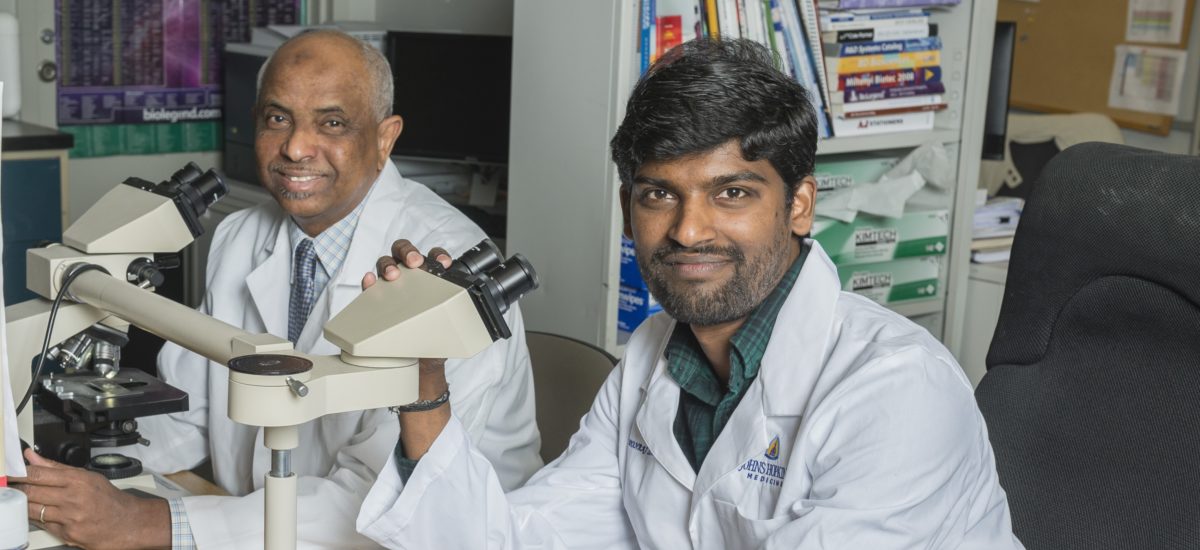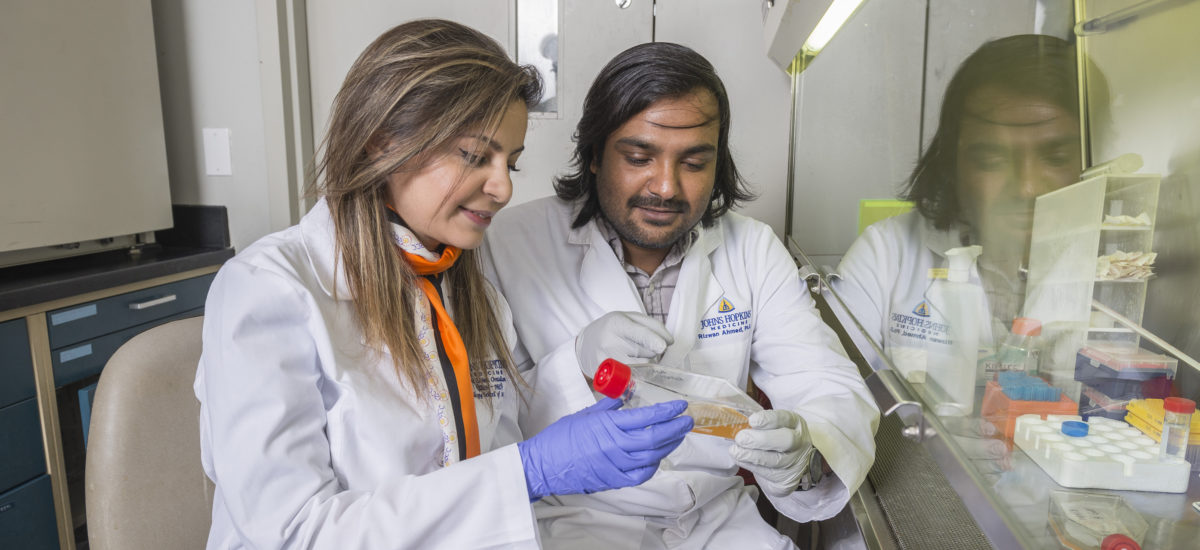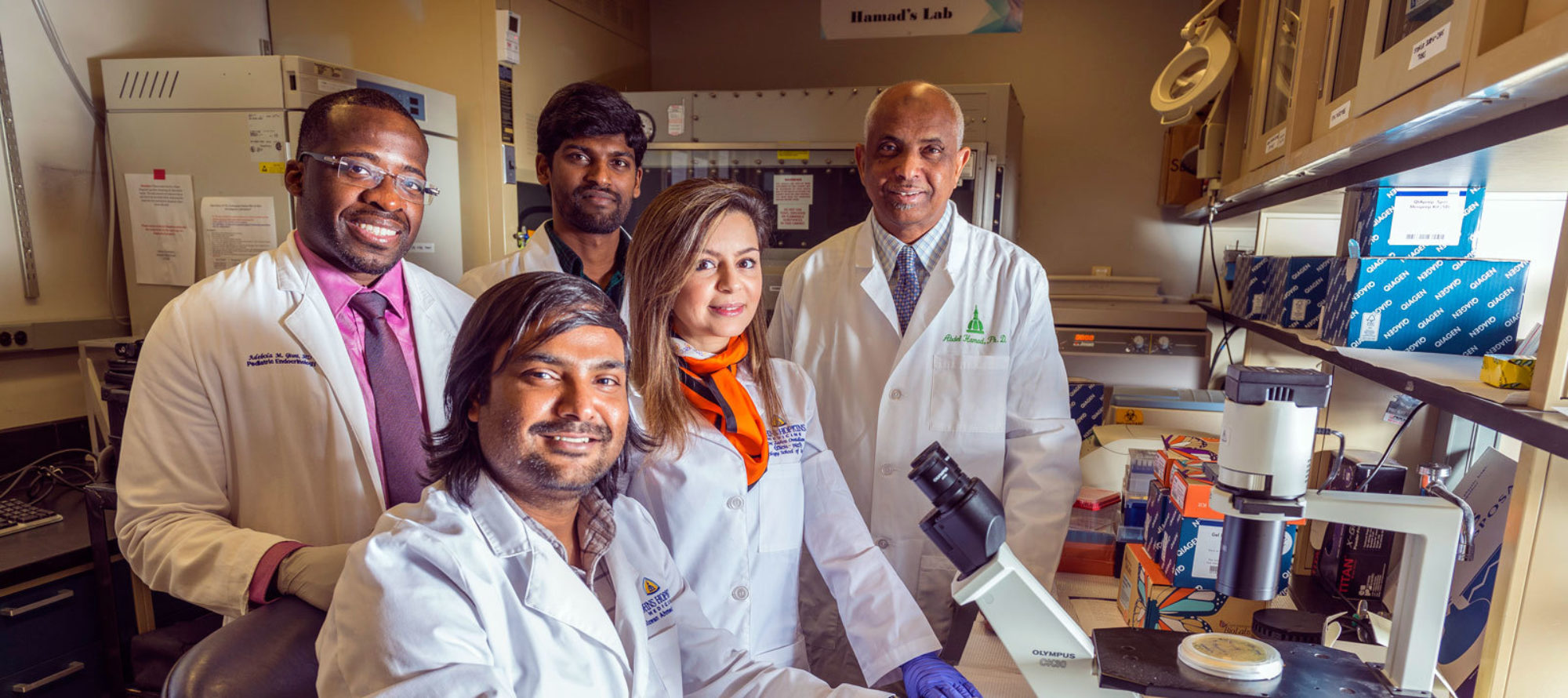Type 1 Diabetes
Type 1 Diabetes, also called autoimmune diabetes, results from mistaken recognition of islets of Langerhans— the only source of insulin in the body— as a foreign entity by the individual's own immune system.
As a consequence, different cell types of the immune system led by T cells work together to invade the pancreas and destroy pancreatic islets, leading eventually to their destruction and insulin deficiency.


Research: Looking Ahead
We are making advances in better understanding why and how the immune system goes awry leading to the development of Type 1 Diabetes.
Our research is searching for a way to prevent its development in at-risk individuals and progression in those with established disease.

The Immunologist's Role
Immunologists play an important role in battling Type 1 Diabetes. Immunology is necessary in diagnosing and better understanding the disease to then find ways to possibly prevent and eradicate it.

Our Expertise
We are a team of lab scientists, biomedical researchers and patient care providers united in a desire to better understand diabetes processes.

